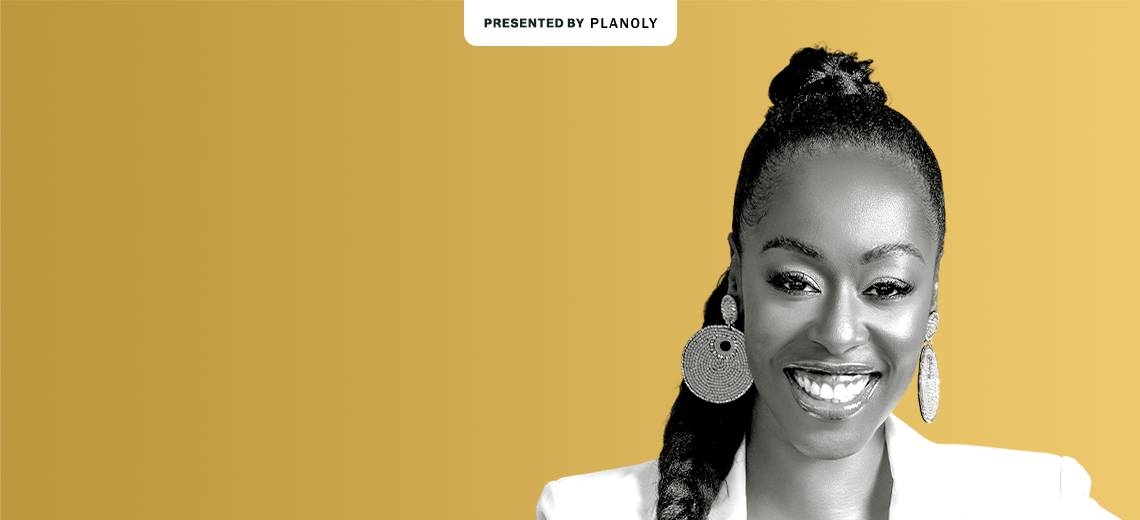This is an episode of the Glossy Beauty Podcast, which features candid conversations about how today’s trends are shaping the future of the beauty and wellness industries. More from the series →
Subscribe: Apple Podcasts | Stitcher | Google | Spotify
For many people, a bad hair day would result in a few shed tears and some variation of a head covering. However in the case of Yve-Car Momperousse, CEO and co-founder of Kreyol Essence, a beauty brand specializing in natural hair-care and skin-care products from Haiti, what started as a solution to a “hair catastrophe” evolved into a “social impact brand.”
“Hair, dry skin, eczema — for any issue you had in the Haitian community, you found [a solution in] this bottle of this product,” said Momperousse on this week’s Glossy Beauty Podcast. The product in question, Haitian Black castor oil, served as the solution to Momperousee’s hair loss at the time and the foundation of her brand, launched in 2014.
“We’re not only looking [at] how we impact our tribe, which is what we call our customers, but we’re also looking at how we impact our producers and every part of the supply chain that it takes to make the castor oil,” said Momperousse. Aside from providing “women of color” with products for “kinky, curly hair,” Kreyol Essence is “creating work for farmers, helping with the environment, exporting and changing the relationship that people have with Haiti,” she said.
Now, the brand has expanded with more products, like Moringa powder, which also includes “collagen, ashwagandha and vitamin C,” for a holistic approach to beauty, she said. Simultaneously, Kreyol Essence continues to expand its retail presence, from “Shark Tank” to the shelves of Ulta to QVC.
Looking ahead, Momperousse continues to look at “the larger picture,” she said. The guiding question is, “Are you doing something above and beyond what a traditional business would do, with [a] clear intention for impact either on the environment [or] for a specific group of people?”
Below are additional highlights from the conversation, which have been lightly edited for clarity.
Flipping the narrative surrounding Haiti
“The stat that people mostly hear about Haiti is that it’s the poorest country in the Western Hemisphere. But people don’t know is that it’s one of the most biodiverse countries in the Caribbean and that we are plentiful and rich, when it comes to our soil, when it comes to nature. And that’s why, often, whether it’s a mango or coffee, or Black castor oil, or vetiver — which is the highest-priced oil in the perfume and beauty market — most people don’t know that [it] comes from Haiti. The terrain is rich and natural and fertile, [so] you get the best quality products. We wanted to introduce a different relationship for people to have with Haiti, and to be able to help beyond a donation by doing business with the country. We consider ourselves a social impact business.”
On choosing the right retail partner
“It’s important to select wisely who your retailer partnership is going to be because it’s a marriage, and you don’t want to get divorced on ugly terms. When we launched with Ulta, something that stood out to me is that few, or almost no other, retailer partnerships that we had asked how we were doing personally. Because this was at the height of George Floyd, our community was distraught. And it, to me, sent a big signal about who’s aware [enough] of what’s also going on in the world to say, ‘Are you guys OK?’… And to be able to have that humanistic conversation was important. And to double down on that, Ulta had our pictures splashed up on every window, their emails. They were setting us up on different podcasts. There was an effort to make sure that the Ulta larger community was supporting and amplifying brown and Black voices… And that’s a different exchange and a different relationship than when you’re going with brands who have no real connection to the ingredients, the people [or] the history.”
The trials and tribulations of launching during the pandemic
“At the beginning of 2020, we first launched our episode on “Shark Tank”… We got through that and launched at Ulta. Of course, every brand dreams about the day that they’re launching into their dream retailer. And ours, all of a sudden, had to be shifted to online because stores were closed. After that, we couldn’t get the same amount of inventory that we planned to get into Ulta doors at that time, but we made sure we got things on Ulta.com. Thereafter, we were sold out for about six months, trying to keep the shelves filled. And we launched being one of their top-selling hair-care brands, which was not something we even imagined. But it spoke to the need around scalp care and around how to take care of yourself, especially while people were at home. In addition to that, it’s the first time that anyone saw a Haitian brand in an Ulta Beauty store or in a number of mainstream shelves… It was about impact. It was about the diversity of folks that we have in our tribe and in our customer base. When you go into Ulta, you see all of our customers, and those are real people. You have those with straight hair, those with kinky hair, you have men, and you have kids.”




